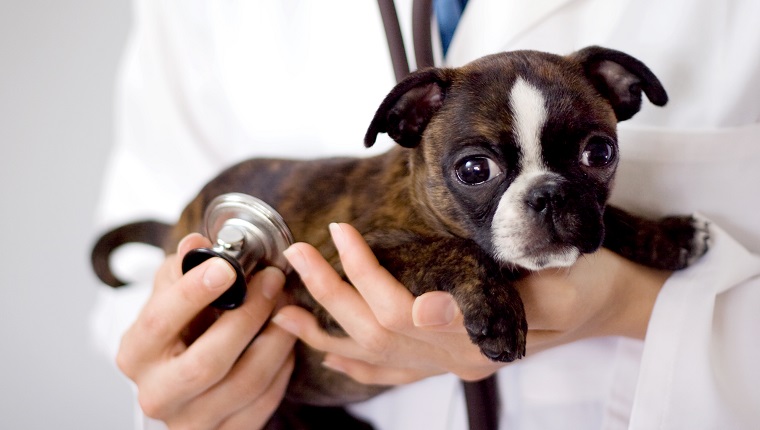Science has come a long way for human’s medical needs. DNA testing is one of those newer and more reliable technologies in people. For dogs, the industry still needs regulation before the field can actually become more reliable. Scientists are practicing and preaching caution for dog owners who want to get their pets swabbed and tested.
The recent explosion of popularity in genetic testing kits for dogs has grown more rapidly than the science. Data on specific diseases from DNA testing are not yet streamlined for comparison. For that reason, many of the businesses that test doggy DNA may give dog owners false hope or an incomplete understanding about the results.
“Genetics is a really powerful, new tool but it really is a new tool,” said Elinor Karlsson, a senior author of a study about genetic testing of dogs that appeared in the science journal Nature. “We don’t understand what it means yet.”
Don’t Base Life-Or-Death Decisions On Dog DNA Testing
There’s already a documented case that turned out for the worst. A senior Pug showed symptoms like loss of bladder and bowel control and walking difficulties. Genetic testing revealed that she had a gene connected to amyotrophic lateral sclerosis (ALS). Thinking they were doing the best for their dog, the owners put her to sleep to avoid the suffering that comes with such a condition.
They realized later on that she may not have developed ALS. Scientists found that only one in 100 dogs who possessed the gene developed the rare disease. Instead of a progressive disease, the Pug may have had a more treatable spinal disorder. However, the owners made a life-or-death decision based on an incomplete understanding of DNA testing, and they may have chosen wrong.
Should You Test Your Dog’s DNA?

Testing your pet’s DNA is not inherently dangerous. It can even be a fun thing to do if you want to know the different breeds mixed into your dog’s DNA. Still, experts caution dog owners. This may not be the best approach when it comes to heavier and graver decisions.
“We have to come up with some mutually agreed upon ways to report these results, and figure out how to validate them,” said researcher Lisa Moses. “We’d need to have transparency on how the tests are done, how the science is done and talk seriously about data sharing.”
Different organizations and institutions have started standardizing testing and data sharing. Since dogs carry diseases similar to humans, there is hope for this future area of research. It can even someday be a possible key to developing treatments for humans with similar diseases.
Is There Still Good In Doggy DNA Testing?
There’s a big chance that dog DNA tests will still be helpful and useful, especially when the data pours in. Genetic testing now usually costs less than $200, so more people may take advantage of the affordability of the service. With this comes more data about dogs that can be collected into a working database. Testing may even evolve in the next few years to become more sophisticated for disease tracking and treatment.
The biggest move now for genetic testing is to establish standards. Sample data collection would be a big step. Researchers, regulators, and even pet owners should work together to collect all that available data.
For now, consult your vet when making a life-or-death decision about your dog. Trusting novel tests may be best left if you want to know whether your Shih Tzu is a purebred or if they have some Lhasa Apso blood. Just take results with a grain of salt until science can catch up.
What are your thoughts on DNA testing? Are you eager to give it a spin for your dog? Let us know in the comments below!
Related articles:









